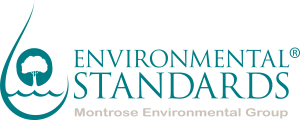
First, some background information: a field sampling audit, or simply field audit, is an independent, non-biased review of the environmental sampling and monitoring procedures being conducted in comparison to the project requirements.
The primary goals of a field audit are to:
- identify non-conforming items that have the potential to negatively affect data quality
- institute corrective actions
- promote continuous program improvement
Field auditing is a valuable practice that is often viewed as a critical first step in the data defensibility process because an improperly collected sample will likely result in poor data quality. Ultimately, field auditing is an effective tool used to identify and correct planning, sampling, and documentation deficiencies before they become consequential.

If you are an environmental manager or director who hires consultants or contractors to conduct monitoring and sampling, you may benefit from a field audit. Are you confident that your consultants are following appropriate procedures and that your data is legally defensible? Are you concerned that improper sampling procedures may be affecting your data quality? Maybe you don’t have spare time to be away from the office for several days overseeing your consultants in the field. Rest assured that experienced and certified auditors will spend the necessary time observing and asking questions to determine if project and regulatory requirements are being met. Seasoned field auditors, like those on staff at Environmental Standards, focus on providing a “fresh set of eyes” and promoting program improvement rather than finding fault or emphasizing shortcomings.
Following a field audit, a debriefing is conducted and a formal report or project memorandum is generated by the auditors. The debriefing typically includes the client and the audited party and is used to document the sampling event; observations, positive feedback, and findings identified during the audit; and recommendations regarding process improvements and corrective actions. Results of high-quality field audits can be used to evaluate contractor performance, document compliance with regulatory requirements, and serve as “lessons learned.”
Environmental Standards’ professionals have experience auditing soil, sediment, groundwater, surface water, air/vapor, and biological field sampling programs. Our auditors are available to conduct field audits on short notice and in remote locations. For example, during the past year we have conducted field audits for various clients on Alaska’s North Slope, in northern Canada, and in the Nevada desert, just to mention a few. If you have concerns about the quality of your data or the sampling and monitoring techniques being employed, perhaps a field audit is just what you need.
